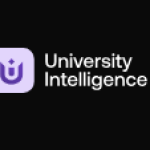The landscape of higher education is undergoing a significant transformation. With the rise of digital tools and evolving student expectations, universities and colleges are leveraging technology to optimize their marketing efforts. One of the most impactful innovations in this area is education marketing automation, which is reshaping the way institutions engage with prospective students, manage leads, and streamline enrollment processes. In this article, we explore how marketing automation is revolutionizing higher education marketing and how it can benefit universities in building strong relationships with students.
The Evolution of Higher Education Marketing
In the past, higher education marketing primarily relied on traditional methods such as print brochures, direct mail, and in-person recruitment events. While these tactics were effective at reaching some students, they lacked the ability to track engagement or provide personalized content. Additionally, these approaches were often resource-intensive and time-consuming for admissions teams.
Enter education marketing automation—a modern solution that enables colleges and universities to automate repetitive marketing tasks, create personalized content, and engage prospective students at scale. With marketing automation, universities can deliver timely and relevant information to potential students throughout the entire enrollment journey, from initial inquiry to final acceptance.
Personalized Communication at Scale
One of the biggest advantages of education marketing automation is its ability to create personalized communication for each prospective student. Students today expect a tailored experience, and generic mass emails or generic advertisements often fail to make an impact. Marketing automation allows universities to send targeted emails, messages, and notifications based on a student's behavior, interests, and stage in the application process.
For example, when a prospective student fills out an inquiry form or visits a program page on a university’s website, marketing automation tools can trigger an immediate, personalized response. This could include a welcome email, program information, or a customized content recommendation based on their interests. Similarly, if a student abandons their application mid-process, automated follow-up messages can remind them to complete their submission and offer assistance if needed.
This level of personalization builds trust, engagement, and a sense of connection with prospective students, increasing the likelihood of conversion.
Optimizing Lead Generation and Nurturing
Lead generation and nurturing are critical components of any successful higher education marketing strategy. With education marketing automation, universities can significantly enhance these efforts by automatically capturing, categorizing, and nurturing leads over time.
Marketing automation platforms can collect information from website forms, social media, and digital ads, creating a comprehensive lead database. This allows admissions teams to track each lead's interactions and interests. From there, automated workflows can be set up to nurture those leads with relevant content, timely reminders, and targeted ads. By automating follow-ups, universities ensure that no lead is lost due to manual oversight or slow response times.
Moreover, marketing automation tools can segment leads into different categories (e.g., undergraduate, graduate, international students) and personalize communications accordingly. For instance, international students may receive content related to visa requirements, while undergraduate leads may be sent information about campus life or financial aid.
Enhancing Engagement Across Multiple Channels
Marketing automation is not limited to email. It integrates seamlessly with a variety of channels, such as social media, paid ads, text messaging, and even website content, to create a unified marketing strategy. Universities can leverage automation to engage students where they are—whether on social media platforms like Facebook or Instagram, via mobile text messages, or through personalized web experiences.
For example, automated social media ads can be shown to prospective students who have previously visited a university’s website or interacted with its content. These retargeting ads can remind them about the university’s programs, upcoming application deadlines, or open houses. Similarly, automated SMS messages can be sent as reminders for deadlines or offer quick answers to frequently asked questions.
By reaching students on multiple touchpoints and delivering consistent, personalized messaging, universities increase the chances of maintaining student engagement throughout their decision-making process.
Streamlining Enrollment and Application Processes
The application and enrollment processes are crucial steps in the student journey, and marketing automation can make these stages much more efficient and seamless. By automating application reminders, document submission requests, and confirmation emails, universities can reduce friction in the application process and ensure that students don’t miss important deadlines.
Additionally, automated workflows can track the progress of individual applications, automatically sending updates to students on their application status and what actions they need to take next. This reduces the administrative burden on admissions staff, ensuring they can focus on higher-value tasks such as personalized outreach and student support.
Data-Driven Decision Making
One of the greatest strengths of education marketing automation is its ability to collect and analyze data. Every interaction with a prospective student—whether it’s an email opened, a webpage visited, or a form filled out—generates valuable data that can be used to improve marketing strategies.
Marketing automation tools provide detailed reports and insights on campaign performance, allowing universities to analyze open rates, click-through rates, conversions, and other key performance indicators (KPIs). This data enables higher education institutions to fine-tune their strategies, identify trends, and make data-driven decisions for future marketing efforts.
For example, if an email campaign targeting prospective graduate students shows a low open rate, marketing teams can analyze subject lines, email content, and timing to make adjustments. A/B testing can be used to test different approaches and find what resonates best with the target audience.
Improving ROI on Marketing Spend
Higher education marketing budgets are often limited, and institutions must prioritize spending to get the best return on investment (ROI). Education marketing automation allows universities to stretch their marketing dollars further by streamlining marketing tasks, reducing manual work, and targeting prospects more effectively.
By automating many of the repetitive tasks traditionally done manually—such as responding to inquiries, sending reminders, and scheduling appointments—universities can reduce costs and focus resources on high-impact activities, such as personalized outreach or recruitment events. Furthermore, marketing automation enables institutions to better track the success of their campaigns, ensuring that every dollar spent contributes to their marketing goals.
The Future of Higher Education Marketing
As the demand for digital engagement continues to grow, education marketing automation will become increasingly essential for higher education institutions. With automation tools continually evolving to offer more sophisticated personalization, real-time interactions, and seamless multi-channel strategies, universities that embrace these technologies will have a distinct competitive advantage in recruiting and retaining students.
Moreover, the growing role of artificial intelligence (AI) in automation will likely introduce even more advanced features, such as predictive analytics and personalized student journeys based on data patterns. As these innovations unfold, the future of higher education marketing will be driven by even more automation, personalization, and efficiency.
Conclusion
In conclusion, education marketing automation is revolutionizing the way universities and colleges approach student recruitment, engagement, and retention. By automating marketing processes, personalizing communications, and utilizing data-driven insights, institutions can improve their marketing ROI, increase student enrollment, and create a more efficient, personalized experience for prospective students.
For institutions looking to stay ahead in this digital era, embracing marketing automation is no longer optional—it’s essential.






Comments